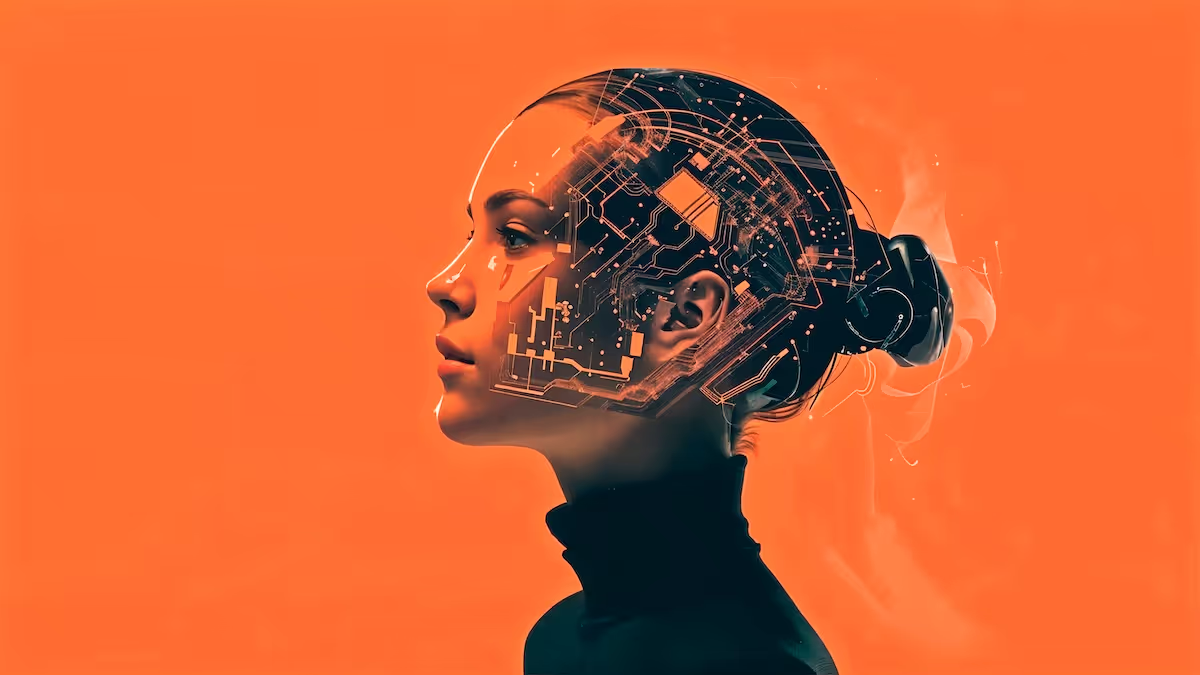
Beauty has always been shaped by culture, technology, and society. Back in 2010, it felt like it belonged to the glossy covers of Vogue or Harper’s Bazaar. We all wanted to be like the airbrushed supermodels with impossibly slim waists perfected by skilled photo editors. We dreamed of becoming Photoshop experts, mastering contouring, or buying every miracle makeup product that promised to bring us closer to that ideal.
Fast forward to today, our need to reach beauty perfection is still there, but it evolved. Instead of magazine covers, we now use Snapchat, TikTok, and Instagram filters that instantly erase blemishes, enlarge eyes, plump lips, and transform our faces into hyper-polished versions of ourselves. At the same time, AI-generated photos flood our feeds, while AI influencers gain millions of followers and redefine beauty trends.
AI can recommend the perfect foundation shade, generate a skincare routine, simulate how different hairstyles would look or, as a salon owner it can help you automate salon tasks. These tools make beauty more accessible and customizable than ever before, but AI also changes our expectations of beauty, pushing us toward impossible perfection.
In this article, we’ll talk about how AI is transforming beauty. We’ll list practical tools that analyze our skin and hair to recommend better products, then will move on to the benefits of personalized care and smart management systems, and finally, will talk about the challenges of unrealistic standards and the pressure to look as flawless as our digital selves.
AI beauty try-ons let you experiment with different hair colors, styles, and makeup shades to see what truly suits you, saving you from spending money on products that don’t complement your skin tone, face shape, or features. Even more impressive are AI-driven skin analytics, which can assess hydration, fine lines, pigmentation, overall skin health, and make product and routine recommendations fit for your skin type. Below is a list of some AI beauty try-ons and AI skin analytics that you should try.
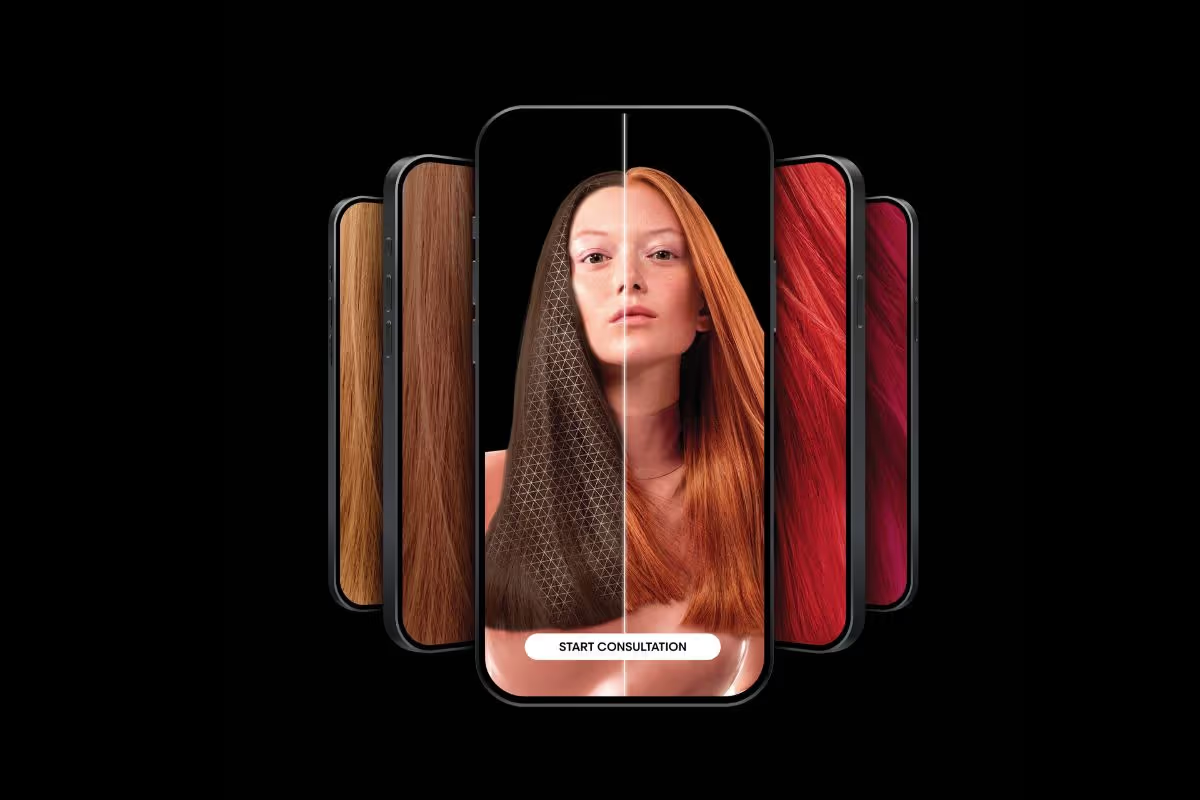
L’Oréal user-friendly AI beauty tool lets you experiment with different hair colors. You can instantly see how you’d look with everything from natural brunette shades to bold blues and pinks. The system uses real-time AR to map your face and hairline which makes the color application feel more realistic rather than cartoonish. This tool is perfect if you are hesitant to commit to a dramatic hair transformation like platinum blonde or simply testing a darker brown for fall. The big advantage is the confidence it gives before spending time and money at the salon. Plus, it reduces the risk of regret after a color treatment that doesn’t suit your skin tone or style.
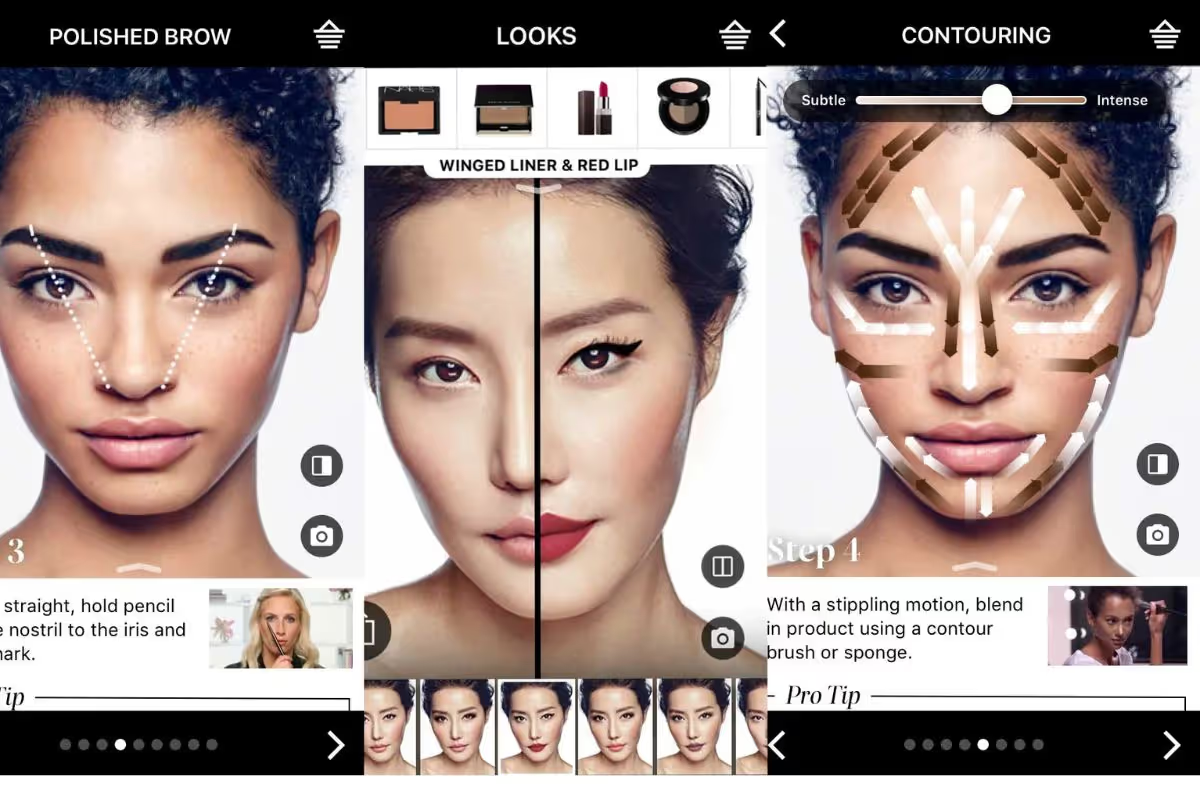
Sephora was one of the early pioneers in AI beauty technology and their Virtual Artist changed the online makeup shopping when it launched. Customers who engaged with the tool were three times more likely to make a purchase compared to those who didn’t, and the company saw a 30% decrease in makeup product returns, delivering both operational efficiency and financial gains. With just a selfie, users can try on thousands of products, such as lipsticks, foundations, eyeshadows, and even entire curated looks. The app adjusts the shades to your exact skin tone, meaning you don’t need to guess whether nude beige or warm sand will match. It’s also an incredible way to experiment with bold colors, like a deep burgundy lip or metallic eyeshadow, without the mess of physical testing. For beauty lovers, this tool feels like having a makeup artist in your pocket. Plus it saves time in-store and makes online shopping much less risky.
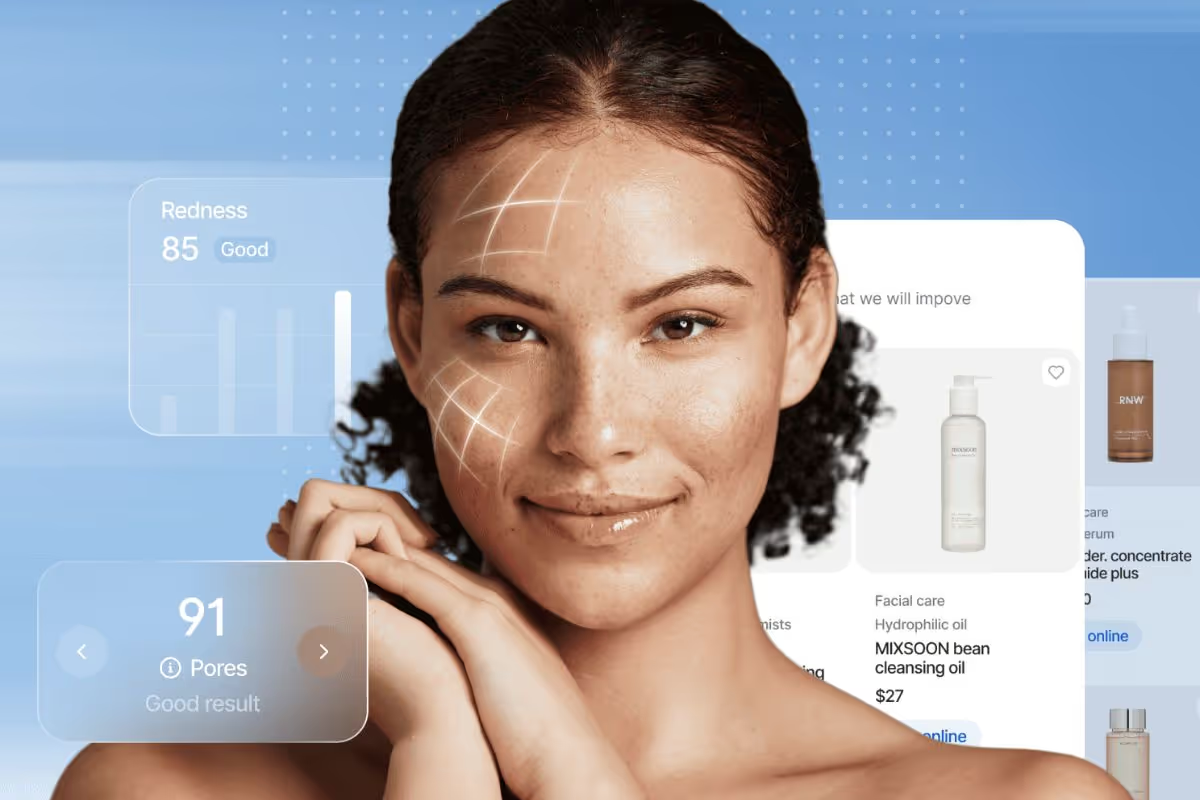
Haut.AI takes AI beauty beyond fun filters and into the world of serious skin science. This advanced platform analyzes your skin in detail identifying fine lines, wrinkles, dark spots, and hydration levels. Once it collects this data, the system provides tailored product suggestions designed to address your personal concerns. Brands and retailers use Haut.AI to give customers a virtual dermatologist experience, making expert-level analysis accessible from home. If you want to stop buying skincare blindly, Haut.AI offers you data-backed recommendations. It also helps you track progress over time, so you can see if your new serum or moisturizer actually works.
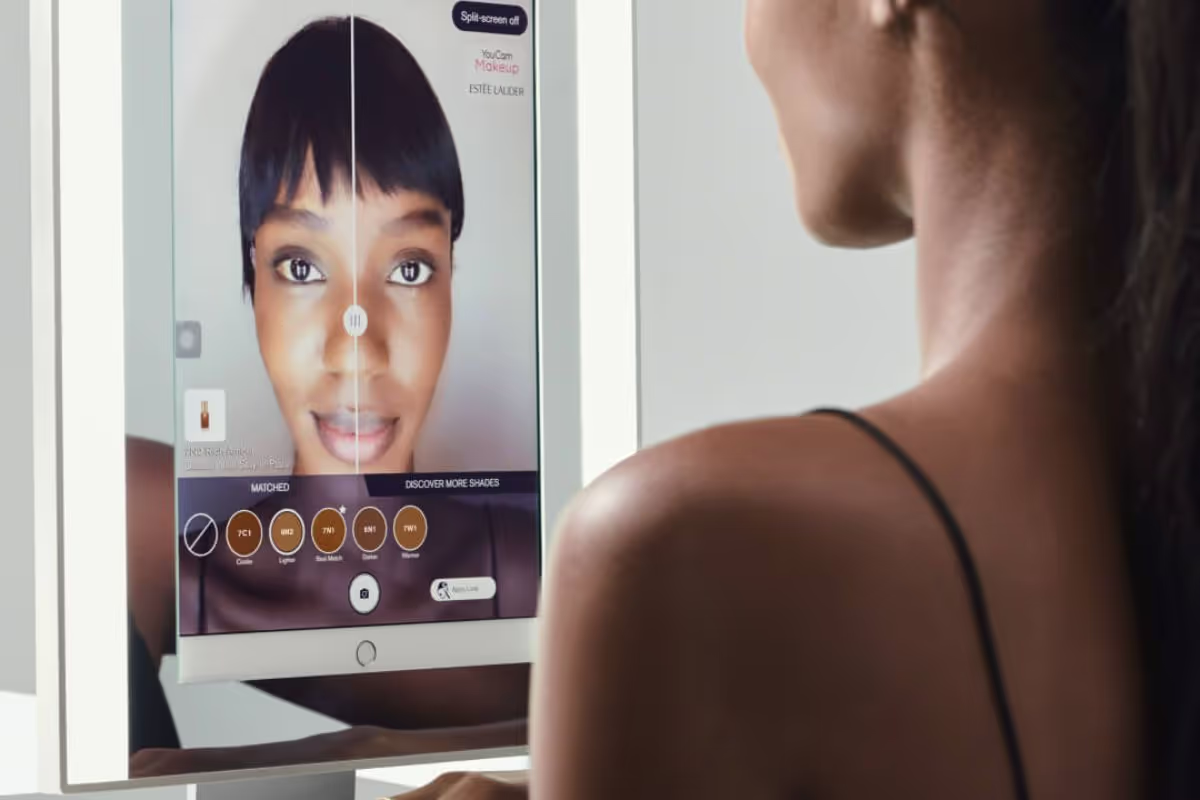
Estée Lauder’s virtual try-on focuses on delivering a luxury beauty experience online. Their platform lets you explore different makeup looks, lipstick shades, and foundation matches with just a photo or live camera feed. The technology is highly polished, ensuring the products look realistic when applied virtually. This tool mirrors the in-store counter experience but makes it more convenient, allowing customers to test premium products anytime.
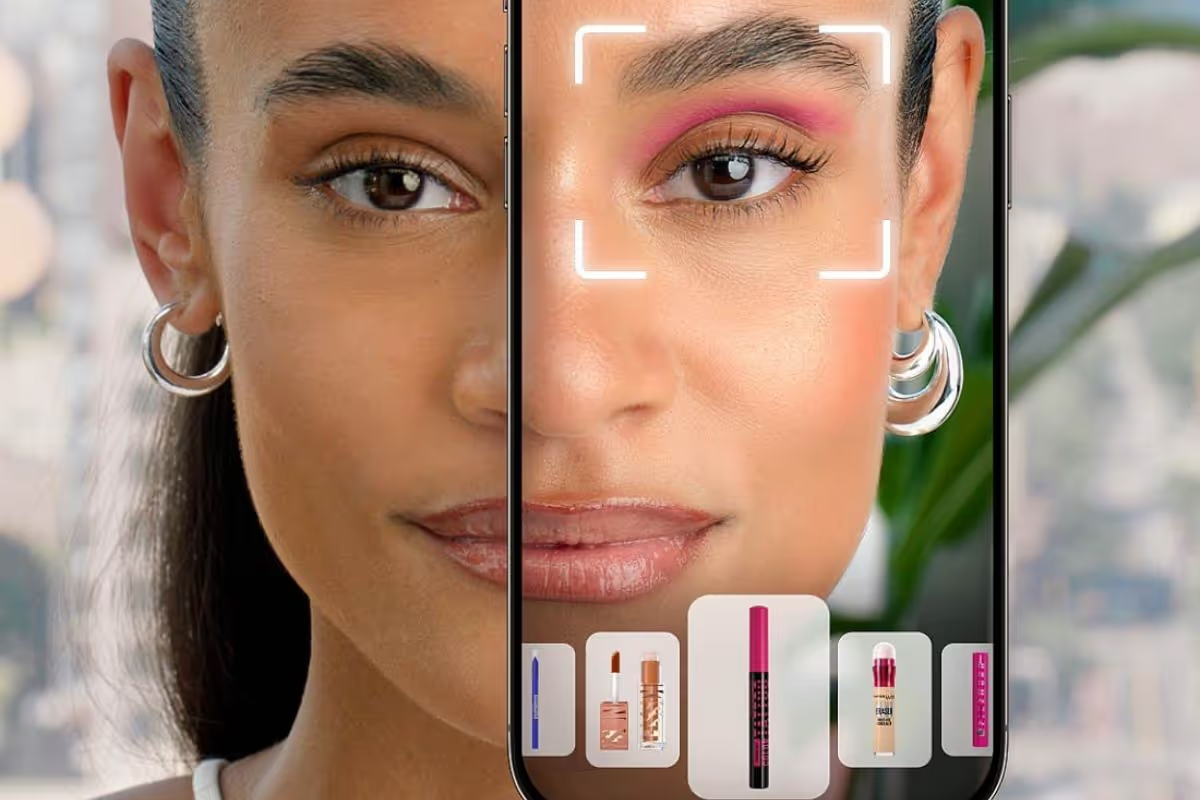
Maybelline’s virtual tool is all about fun, creativity, and trend exploration. It allows users to experiment with bold lipstick shades, dramatic eyeliners, colorful mascaras, and the latest TikTok-inspired makeup looks. The platform encourages playfulness, making it easy to try a neon pink lip for a night out or a “no-makeup” makeup look for everyday wear. Maybelline’s tool appeals especially to younger users who are eager to test trends before committing to a purchase.
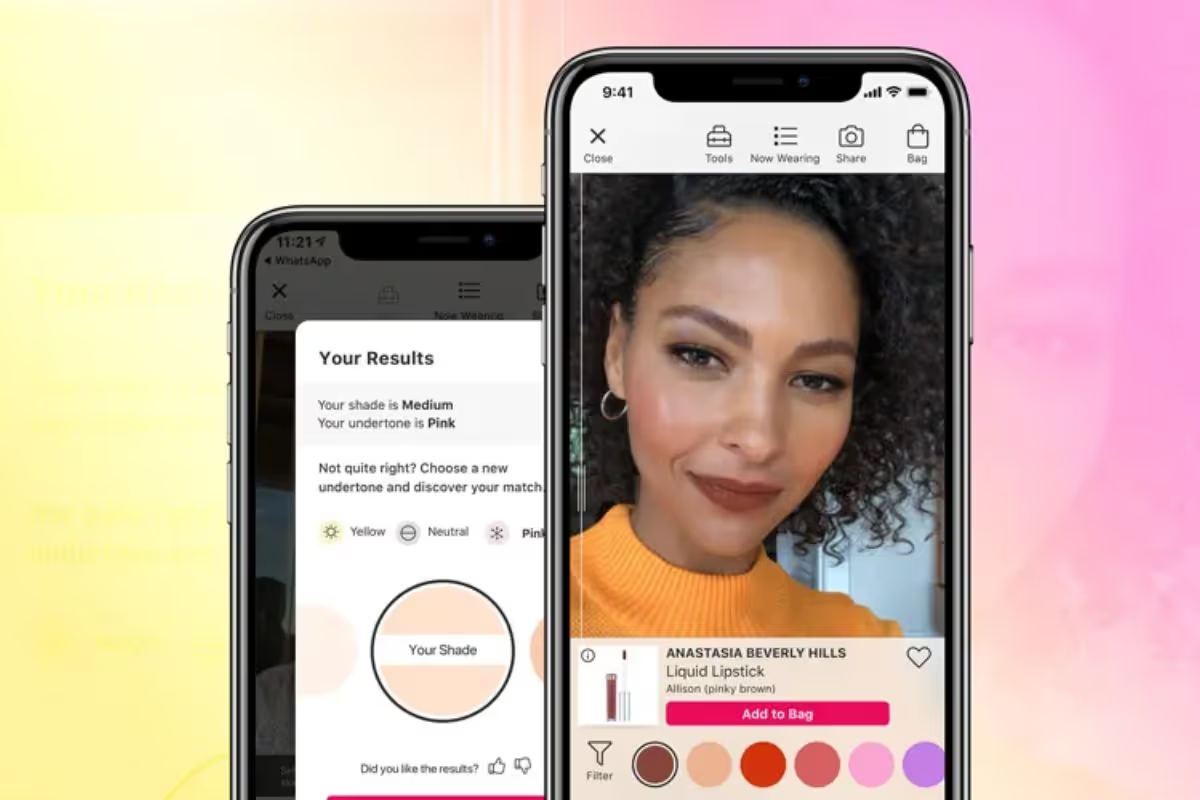
Ulta Beauty brings together both hair and makeup in its AI-driven platform. Customers can preview hairstyles, hair colors, and cosmetics directly from their website or app. This makes Ulta a one-stop hub for complete transformations, whether you’re curious about trying caramel highlights or pairing them with a new lipstick.
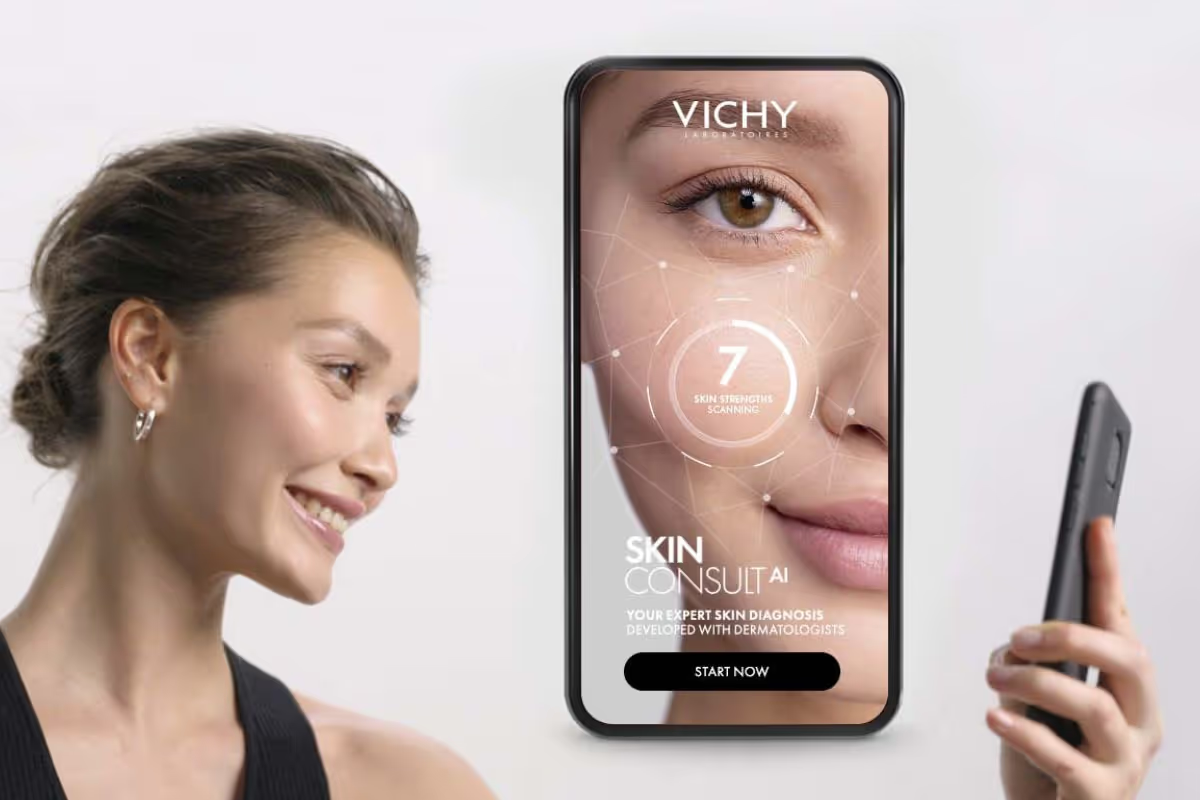
Vichy’s AI-powered tool is focused on skin health and dermatological care. The tool analyses a simple selfie and evaluates hydration, wrinkles, pigmentation, and overall skin condition. It then suggests tailored skincare products from Vichy’s professional-grade range. Unlike makeup try-ons, Vichy positions AI as a science-backed advisor. It’s particularly appealing to people who want trusted, clinically tested recommendations without scheduling a dermatologist appointment.
Artificial intelligence is reshaping how we approach beauty from how we choose products to how salons operate. In fact, 68% consumers now trust AI-generated recommendations more than traditional marketing claims, highlighting how technology is transforming customer experience and also the way the industry delivers services. Here are some benefits AI is bringing to the beauty sector.
According to data from FIT’s national survey, 86% of respondents said they’re open to fully personalized, AI-generated beauty products. With AI beauty try-ons, consumers can now experiment with different hair colors, hairstyles, and makeup shades before committing to a product or salon visit. This means no more spending money on lipsticks, foundations, or hair colors that don’t suit your skin tone or face shape, and no more tears over a haircut that didn’t turn out as expected.
Beyond aesthetics, AI-powered skin analytics is changing skincare entirely. Tools like the ISEMECO 3D D9 or services offered by clinics such as Neko Health can assess hydration, fine lines, pigmentation, and overall skin health. Some AI systems are even being used to detect early signs of serious conditions, including skin cancer, making preventative care more accessible. These technologies help users understand their skin issues and help them find cures or offer them better product recommendations.
For beauty professionals and salon owners, AI is improving operations and client experiences. Actually 36% of people believe that AI can enhance salon efficiency.
Take Goldie, for example, which automates appointment booking, reminders, and cancellations, helping reduce no-shows and last-minute changes. It also maintains detailed client profiles, including service history, preferences, and notes, allowing stylists to deliver more personalized experiences.
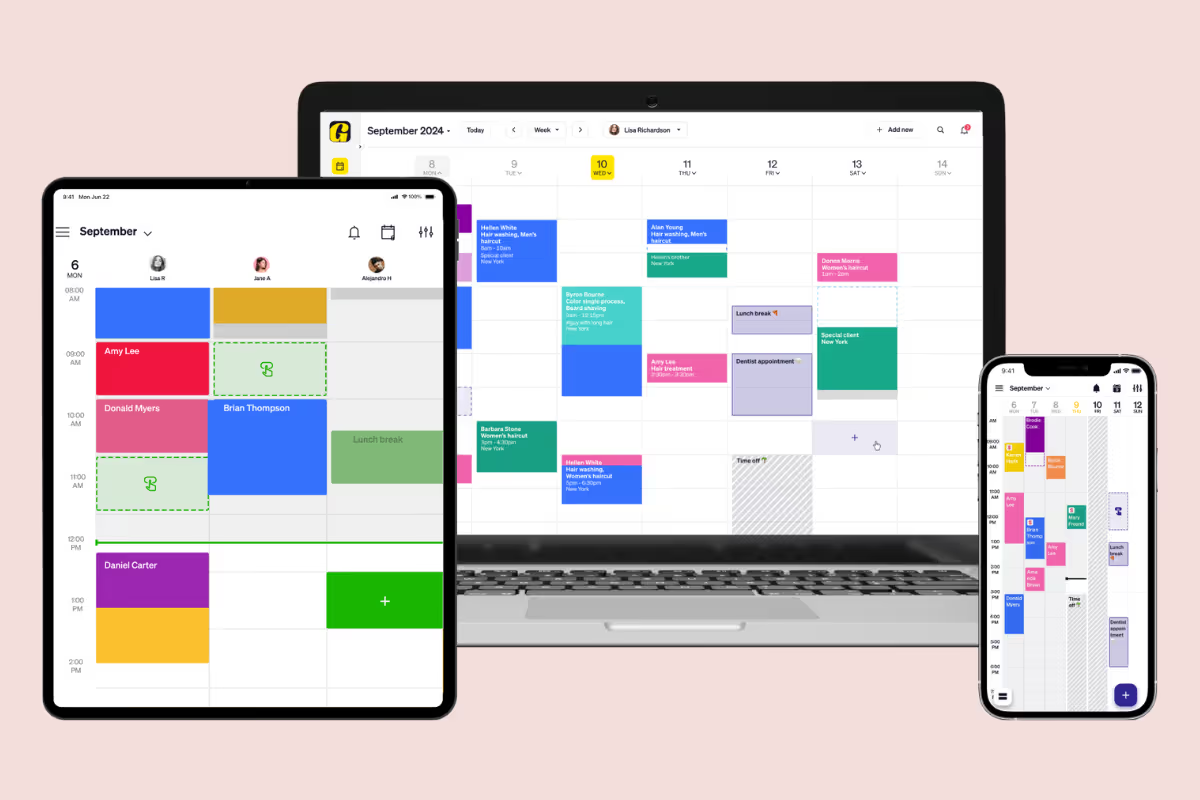
The Honeycomb Hair salon, for example, uses Goldie's AI Assistant to handle service descriptions, policy updates, and their social media captions. This saves them two hours daily and it keeps them visible online without any effort. Salon owners can now spend less time managing logistics and more time focusing on creativity, service quality, and growing their business.
AI used in consumer-facing apps and professional salon equipment and software make beauty smarter, safer, and more personalized than ever before, benefiting both users and the industry alike.
While AI offers incredible benefits, it also comes with a set of challenges, particularly in how it shapes our perception of beauty. One of the most pressing issues is the rise of unrealistic standards.
And here the addiction to filters becomes a major concern. Many users start relying heavily on apps like Snapchat, TikTok, and Instagram to present their digitally perfected selves, becoming uncomfortable with their real appearance. This creates a widening gap between the digital self and the real self, which can lead to anxiety, depression, or low self-esteem.
In extreme cases, people even undergo cosmetic procedures to match the faces they see on filters, something called by plastic surgeons as “Snapchat dysmorphia”. In an interview for Forbes, Dr. Jennifer Levine, a double Board-Certified facial plastic surgeon, said “Sometimes patients are frustrated when we point out the limitations, but most understand that safety must come first and that not everything they see online is real. In the future, I think we will see an increase in unrealistic expectations of eternal beauty, perfect form and figures on social media that become a part of our society’s fabric.”
As AI becomes more integrated into beauty routines, the question of privacy is becoming impossible to ignore. Studies show that around 70% of consumers are willing to trade some personal data for customized recommendations, yet this convenience comes with a cost. Every image and piece of personal data uploaded to virtual assistants or beauty apps can be stored, analyzed, or shared, raising questions about how much control users actually have over their digital identities.
From virtual try-ons that let us experiment with hair colors and makeup shades to AI-powered skin analysis offering personalized skincare advice, technology is making beauty more accessible than ever. On the other side, AI is reshaping how we perceive beauty. Filters and AI-generated influencers flood social media making the line between reality and perfection keep blurring making many feel pressured to match these flawless digital ideals.
We should remember that beauty isn’t defined by AI algorithms or by filters. AI should be a tool that helps us care for ourselves, create smarter and more sustainable products, not something used to redefine what it means to be beautiful.
